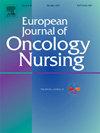Prostate cancer patient experience of prehabilitation prior to radical prostatectomy – A hermeneutical phenomenological study
IF 2.7
3区 医学
Q1 NURSING
引用次数: 0
Abstract
Purpose
This study aimed to explore patient experience of participating in a multimodal prehabilitation program prior to nerve-sparing radical prostatectomy (RP).
Methods
We used an exploratory hermeneutical phenomenological approach where qualitative interview data were analysed, building on the theory of Paul Ricoeur. Six weeks after surgery, we interviewed eight patients that had been recruited for a randomised controlled feasibility study of a multimodal prehabilitation program prior to a nerve sparing RP.
Results
Prehabilitation offered patients a chance to actively contribute to their own well-being. Beliefs about its benefits evolved as the patients progressed through the prehabilitation period, indicating that their own experiences gave a broader understanding of potential benefits. Crucially, the findings highlighted the necessity of tailoring prehabilitation programs to individual needs. For patients to fully engage with the program, it was essential that it adapted to their unique circumstances rather than expecting them to conform to a standardized approach.
Conclusion
Personalizing prehabilitation interventions for prostate cancer patients prior to RP requires active patient engagement and recognition of their desire for autonomy and control in their treatment. Integrating prehabilitation with perioperative care may present an opportunity to improve long-term outcomes and support patient-centered care.
求助全文
约1分钟内获得全文
求助全文
来源期刊
CiteScore
4.40
自引率
3.60%
发文量
109
审稿时长
57 days
期刊介绍:
The European Journal of Oncology Nursing is an international journal which publishes research of direct relevance to patient care, nurse education, management and policy development. EJON is proud to be the official journal of the European Oncology Nursing Society.
The journal publishes the following types of papers:
• Original research articles
• Review articles

 求助内容:
求助内容: 应助结果提醒方式:
应助结果提醒方式:


